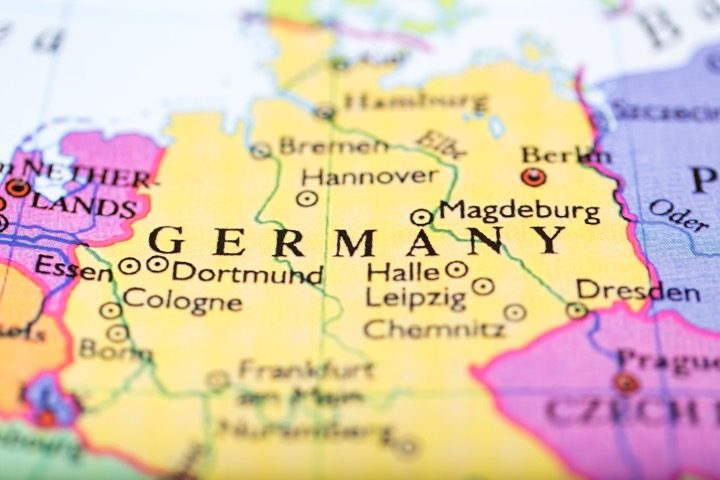
“There’s no England now,” stated the Kinks in 1984, in a song that, in part, lamented the 20th-century loss of English identity. Today, in the 21st century, perhaps it could be said that there’s no Germany now.
Cultural & Moral Decay
That land was once known for science, engineering, Beethoven, Johannes Gutenberg and his printing press, meticulousness, cleanliness, and punctuality. Today, though, it’s running on fumes and leaking oil, says British writer Zoe Strimpel. As she puts it at The Telegraph, owing to cultural/moral decay, what is left of Germany
is one of Europe’s ropiest [low quality] nations, bowed by decades of poor political decisions, bad management and artistic and industrial decline. Fans in Frankfurt for the Euros have found a city of drug-addled zombies, broken fountains and unbridled crime.
From Volkswagen, which never recovered from the emissions scandal of 2015, to Deutsche Bahn, which has some of the worst punctuality records in Europe (only 52 per cent of trains run on time) and a rolling stock whose problems make Britain’s railways seem advanced, Germany’s traditional once-great industrial prowess has been replaced by shambolic third-ratism.
The problems go deeper. Last week, German [soccer] midfielder Toni Kroos, who moved to Spain to play for Real Madrid ten years ago, said he felt his seven-year-old daughter was safer in Spain than in his homeland because of “uncontrolled” migration.
… But he said that he “felt the impact of migration was underestimated” and — with a dash of wisdom Merkel would have done well to listen to before opening Germany’s doors to more than a million Syrian refugees in 2015: “Clearly when many people come, there is always a percentage who do not do us good….”
It’s “not really the same country that it was 10 years ago when we left,” Kroos later lamented. But quite telling is what he said in-between.
After stating that “there is always a percentage who do not do us good,” he added, “just as there is among Germans.” Yet is there really an equivalence?
Migration & Cultural Differences
Those native Germans “who do not do us good” existed prior to the intolerable cultural change Kroos references; they’ve always existed. Yet they never caused that change. It only occurred after the wave of Third World migrants.
So, clearly, those newcomers “do not do us good” in a much different and more destructive way than the “do not do us good” Germans “do not do us good.”
It’s not surprising that Kroos would soften his message with the false equivalence, though. He has a career, endorsement deals, and social standing to think about (not to mention Europe’s “hate speech” laws). “Man on the street” commentary is a bit more blunt, however, as evidenced in the MSN comments section for Strimpel’s article.
For example, “There is in western countries a shocking naivete about cultural differences,” top commenter Stephen Dintaman wrote. “We have been bombarded by the idea of a happy multiculturalism for so long that we have allowed masses of people to enter our gates who do not understand or even explicitly reject our values. Allowing millions of people who do not understand western culture inevitably creates a lot of bad consequences and then the inevitable right wing backlash.”
Are All Cultures the Same?
We can argue about why these differences exist — nature, nurture, or both — but that they do exist and are intractable is a certainty. Ralph Peters, a retired lieutenant colonel and now commentator, made this point well in 2009.
“In my years as an intelligence officer, I saw colleagues make the same blunder over and over: They rushed to stress the ways in which the Russians, the Chinese or the Iranians were ‘just like us,’” he wrote. “It’s the differences that kill you, though.”
Using Afghanistan as an example, he then explained that
we still hear the deadly cliché that “all human beings want the same basic things, such as better lives and greater opportunities for their children.” How does that apply to Afghan aliens who prefer their crude way of life and its merciless cults?
When girls and women are denied education or even health care and are executed by their own kin for minor infractions against the cult, how does that square with our insistence that all men want greater opportunities for the kids?
What about those Afghan parents who approve of or even encourage suicidal attacks by their sons? This not only confounds our value system, but defies biological reason.
Despite this, and harking back to the “shocking naivete” commenter Dintaman spoke of, many Westerners believe that “assimilation” will carry the day.
As the old Jesuit saying informs, however, “Show me a child at seven, and I’ll show you the man.” Why would they assimilate? Because Western “values” are so obviously true? Such projection is rich coming from moral relativists (which most Westerners now are).
This brings us to a point. Like so many, Strimpel attributes Germany’s immigration policies to guilt over WWII-era trespasses. But does this explain why Sweden, Britain, France, and the U.S. have trod the same immigrationist path?
The actual reason is that the West, as commentator Bret Stephens once put it, now believes in “shallow things, shallowly.” We’ve lost our faith, wallow in relativism and don’t have principles but preferences — for sexual devolutionary displays (e.g., “Pride” parades), climate change hysteria, DEI, feminism, multiculturalism, self-flagellation, and nihilism. So even if foreigners were inclined to assimilate, we give them nothing attractive to assimilate into.
In other words, because the Germans themselves had changed, there was “no Germany now” even a generation ago. The Third World immigration is just making it official.
Related article:



